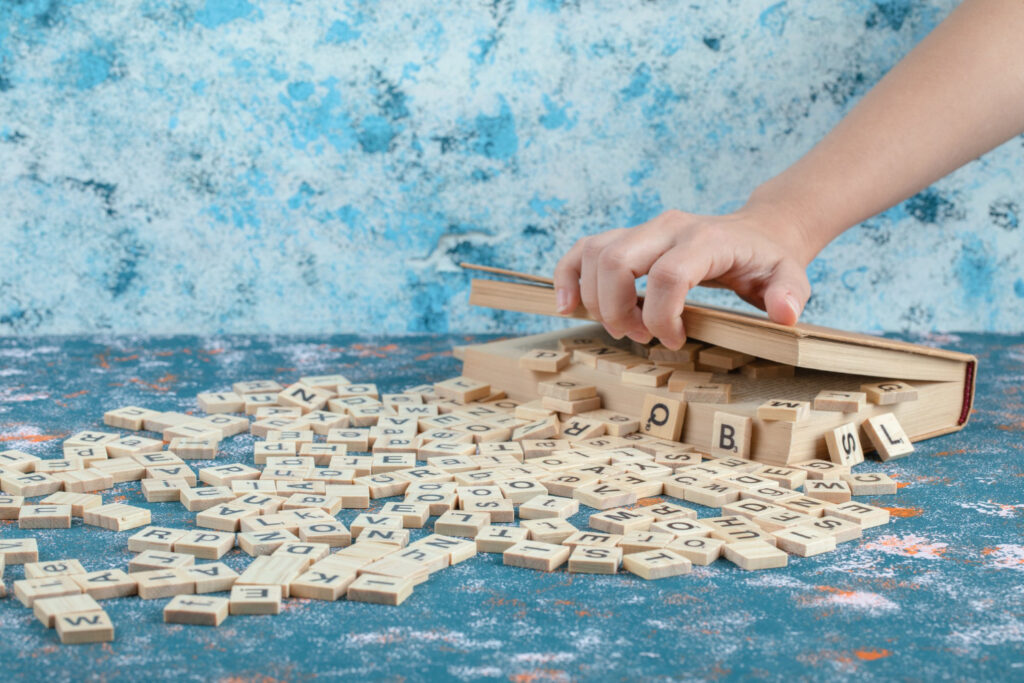You want your child to build a strong vocabulary, but let’s be honest—flashcards, quizzes, and endless repetition can quickly zap the joy from learning.
Nowadays, kids don’t need a classroom full of worksheets to develop powerful language skills. In fact, the most effective way to build a strong vocabulary might be through the thing children love most: play.
Word games are more than just fun. They teach word recognition, comprehension, communication, and confidence. When vocabulary becomes part of the game, kids don’t even realize they’re learning.
Let’s explore 10 captivating games and activities that enhance vocabulary for all age groups, from toddlers who are just beginning to speak to tweens who are ready to demonstrate their language skills.
Why Vocabulary Matters for Reading Success
Vocabulary is the foundation of reading comprehension. When children know what words mean, they understand what they read. The larger their vocabulary, the easier it is for them to decode stories, follow directions, and express their thoughts clearly.
Research shows that early vocabulary size is a strong predictor of later academic success. Children who engage regularly with words—spoken, written, or played with—tend to perform better in school and become stronger, more confident readers.
By turning vocabulary practice into a game, you remove the pressure and introduce language in a natural, enjoyable way.
Word Games for Young Children (Ages 3–6)
Young children are learning language rapidly. These games help reinforce new words through movement, sound, and play:
- I Spy With a Twist
Use colors, textures, and shapes to expand descriptive vocabulary: “I spy something smooth and round” instead of just “blue.” - What’s in the Bag?
Place small objects in a cloth bag. Let your child reach in and describe what they feel without looking. This exercise builds sensory vocabulary and critical thinking. - Rhyming Races
Say a word, and race to come up with as many rhymes as possible. Rhyming improves phonemic awareness and helps children hear sound patterns in words. - Word Hunt
Choose a “word of the day” and look for it in books, on signs, and around the house. Celebrate every time they spot it! - Animal Adjectives
Pick an animal and brainstorm words to describe it: “fuzzy,” “pouncey,” “striped.” The activity builds creativity and descriptive vocabulary.
Short bursts of 5 to 10 minutes work best for these games, and they should always conclude on a positive note, even if your child is reluctant to stop!
Vocabulary-Building Games for Older Kids (Ages 7–12)
Older children can handle more structure and strategy in their word games. These activities blend fun with more advanced vocabulary concepts:
- Word Charades
Write down challenging words (like “astonished” or “clumsy”) and act them out. This activity is an excellent way to reinforce the meaning of words and their emotional context. - Synonym Snap
Use flashcards or create your own deck. Match synonyms together. It’s fast-paced and reinforces more profound understanding of word relationships. - Story Cubes
Roll image dice and create a story using at least one new vocabulary word in each sentence. The exercise strengthens storytelling and creativity. - Category Countdown
Pick a category (e.g., emotions, food, sports) and set a 30-second timer. How many related words can your child name? - Vocabulary Detective
Give your child a mission: find one new word today and report back its meaning and where they saw or heard it. Keep a vocabulary journal for extra practice.
These games introduce children to word nuance and context—key skills for strong comprehension and communication.
How to Turn Daily Life Into a Vocabulary Adventure
You don’t need a game night to teach new words. Opportunities for vocabulary growth abound in daily life:
- In the kitchen: Talk through steps with precise language: “Let’s simmer, stir, and garnish this soup.”
- On a walk: Describe the world in detail: “Look at that towering oak with rough bark and scattered acorns.”
- During errands: Use words like “transaction,” “receipt,” or “cashier” to explain tasks.
The more specific your language, the more words your child absorbs. Narrate your actions, ask curious questions, and model new vocabulary in context. And don’t forget to circle back to those words throughout the week—repetition builds retention.
Play Your Way to Word Power
Vocabulary opens the door to imagination, sharpens comprehension, and builds confident communication. Turning language into a game makes learning feel exciting and natural.
From silly rhymes to storytelling cubes to word hunts at the grocery store, each playful moment helps your child fall in love with language for life.
What’s even more exciting? They’ll be too busy having fun to realize just how much they’re learning.
Want to help your child unlock their full reading potential?
At Read Smart, we believe learning should be joyful, engaging, and tailored to your child’s needs. Our proven programs don’t just improve reading skills—they build confidence, curiosity, and a lifelong love for books.
Schedule a free reading evaluation today and see how we can turn your child’s potential into real progress. Let’s unlock the power of words—together.
Visit Read Smart or call us at (918) 559-7323 to get started.

